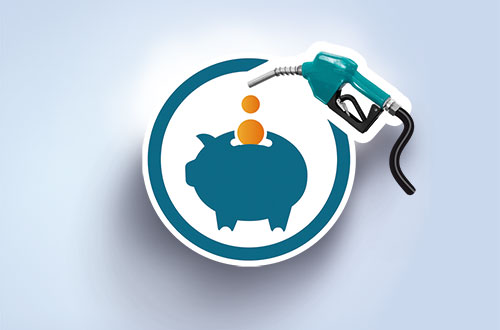#content#
OCU launches first Collective Purchase of Fuel in Spain
26 mar. 2015OCU has launched the first collective purchase of fuel. As in the case of electricity and telephone services, and given the limited possibilities in the fuel distribution market, OCU has initiated the process of the first collective purchase of fuel in Spain conducted by a consumer organisation. OCU has made available to all citizens www.quieropagarmenosgasolina.org (“I want to pay less for petrol”) the website where they can learn about and sign up for free to this initiative to achieve savings in the fuel bills families pay.
For OCU the current fuel distribution market in Spain benefits consumers very little. Although prices in this market have been liberalised for many years, the price differences between petrol stations do not allow consumers to make great savings. Fuel consumption is a major expense for many Spanish families. According to INE (the Spanish Institute of Statistics) a Spanish household spends about € 1,300 per year in fuel, 5% of its budget, although this amount may vary depending on the number of vehicles and how often they are used.
Price: high oil prices are passed on quickly to the consumer, but not price decreases
Fuel prices have sharp fluctuations. OCU notes that in the second half of 2014 consumers witnessed a rather unusual phenomenon. A notable drop in the price of fuel. However, this trend has been broken in recent weeks and prices have rallied strongly. For OCU two factors explain these variations in prices. The first is that the price of oil reached a low in late January and afterwards experienced a substantial rise, but then slowed and even reversed slightly. Added to this the falling euro makes oil more expensive.
OCU denounces how prices are affected at different speeds according to whether the price of oil goes up or goes down. As of 13 January, the date the oil price reached its minimum, average prices started rising in all the main companies before even a week had passed. Since late February increases have been substantial. Since the minimum price, the brands of the Repsol group (Repsol, Campsa and Petronor) have increased, on average, the price of diesel by 12.5%. The other main operators have not been left behind: Cepsa 11.2%, BP 11.4%, Galp 11.7% and Shell 10.9%. The effect on the final price has been much faster than when prices were going down, which would reaffirm the suspicion that adjustment speeds are different when it comes to raising or lowering prices.
During the past week the oil price has plummeted and returned to its minimum level. We do not know the price data yet, but from what we have observed, OCU doubts that prices will fall at the same speed and in the same proportion.
Measures against the chronic lack of competition
The situation in the Spanish market contrasts with what happens in other countries around us. In Spain the prices before taxes and especially the operators’ margins are higher than in many European countries. This is further evidence of the lack of competition in the fuel market.
In this situation, OCU requests the Government and regulators for effective measures to ensure real competition in the market. They must be structural and not just for show. Measures entailing a reduction in the market share of the major operators in provinces, on major roads and in large urban centres, and involving a reduction of their market power, in order to promote a diversified offer to allow consumers reliable choices.
Competition authorities have pointed out that collective purchasing is an effective instrument to mobilise demand and get more competition in the market. This is the main reason OCU is launching this initiative, to mobilise consumers to get a better price in the market.
Collective purchase, together we are more
Consumers have no choice but to organise in order to achieve greater power against major companies, therefore they can get better deals collectively than they would get individually. To this end, OCU has launched www.quieropagarmenosgasolina.org. (“I want to pay less for my petrol”). Through this webpage, OCU opens the way for the launch of the first collective purchase of petrol. Similar to the collective purchase of electricity and telephone services. OCU invites consumers to join a buying group that will try to get the best price for petrol and diesel. Participation is free. Consumers will not have to pay anything at any time, nor make any commitment by registering.
So far more than 700,000 consumers have participated in collective purchases which have revitalised such difficult sectors for consumers as electricity and telephone services. Now the intention of the organisation is to bring together consumers and mobilise a sector that suffers from a chronic lack of competition which prevents consumers from getting better prices. OCU reminds consumers that together we can save money.
OCU appeals to all consumers to support this initiative www.quieropagarmenosgasolina.org the ultimate goal of which is to produce a truly competitive fuel market, with real competition that benefits consumers through better prices and which so far neither the oil companies nor successive governments have managed to achieve.
For more information (media) Eva Jimenez Tel. 917 226 061 prensa@ocu.org

